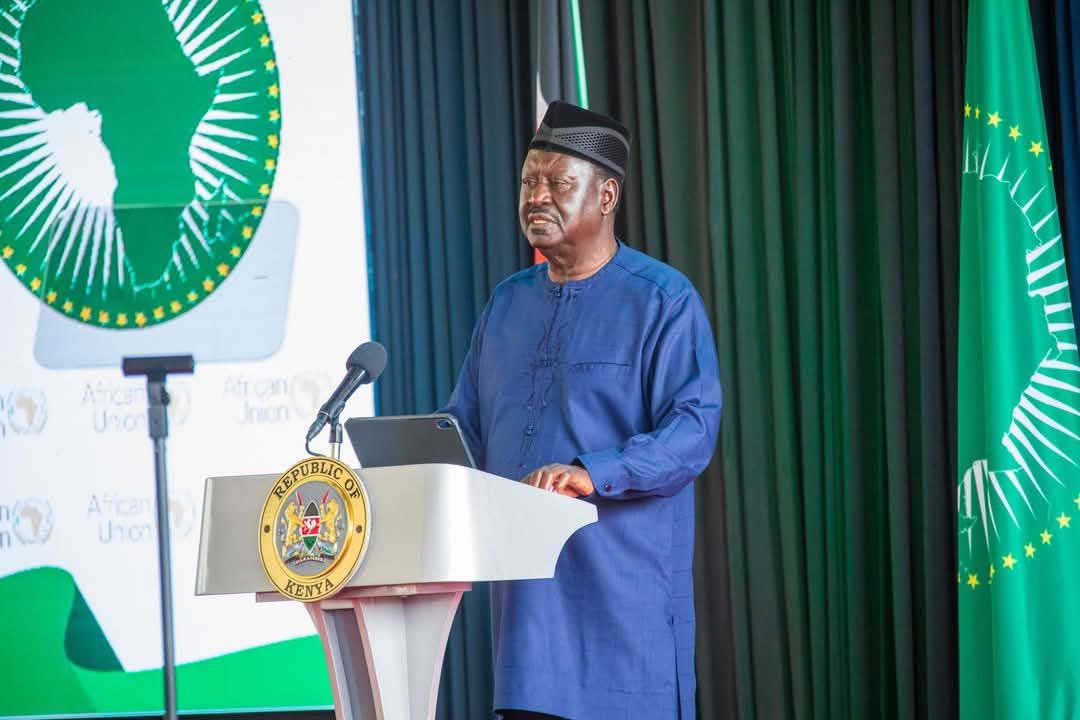

Former Prime Minister Raila Odinga’s unsuccessful bid for the African Union Commission (AUC) chairmanship could soon see him reclaim leadership of his Orange Democratic Movement (ODM) party.
His return would mark a re-entry into active politics amid growing signs of political realignments ahead of the 2027 elections.
On October 12, 2024, Raila formally handed over the ODM leadership to Kisumu Governor Anyang’ Nyong’o, appointing him as acting party leader.
Nyong’o was tasked with steering the party while Raila focused on the final phase of his AUC campaign.
"Today, in line with a recent decision by the Central Committee, I formally task our founding Secretary General, Professor Anyang’ Nyong’o, to step in and provide leadership to our great party, allowing me to fully dedicate myself to the final and more intricate phase of my campaign for the chairmanship of the African Union Commission," Raila announced at the time.
"The Central Committee made this decision a few weeks ago, selecting a man who has played a key role in shaping our party’s direction and solid foundation since its inception. We are, therefore, assured of the ideological continuity and clarity that have defined our movement."
During his campaign, Raila emphasized that even if he won the AUC position, he would remain available for party consultations.
His anticipated return to ODM leadership is expected to stabilize the party, which has recently experienced internal rifts in the wake of his potential departure.
The return would also offer the much-needed direction about the broad-based government following sharp differences among his allies.
A section of party leaders had been fiercely competing for influence, positioning themselves to take over the leadership mantle.
Beyond leadership struggles, ODM has also faced internal debate over its relationship with the Kenya Kwanza government.
The party’s top brass has been engaged in a war of words, raising concerns about the future of the 20-year-old political outfit.
At the heart of the disagreement is whether ODM should continue criticizing the government after forming part of the broad-based administration.
Some party members fear that joining forces with Kenya Kwanza could dilute ODM’s identity ahead of the 2027 elections.
Among those who have clashed on the issue are Siaya Governor James Orengo, Homa Bay Governor Gladys Wanga, and ODM Secretary General Edwin Sifuna.
Orengo, a
key ODM stalwart, has warned that the party must not lose its identity within
the broad-based government.
He insists that ODM leaders in government should not be compromised into silencing the party’s voice for justice.
"I want to remind our people that we have an identity, and if we lose it for short-term gains, we will pay for it in the future," Orengo said during a recent burial in Siaya.
"Losing our identity should never be an option. If compromises must be made, they should be justifiable before God and justice."
In response, Wanga, who also serves as ODM’s national chairperson, cautioned against attacking President William Ruto’s government, where some ODM-affiliated leaders are currently serving.
"Those calling for ODM to oppose the government are enemies who are friends with shareholders," Wanga stated.
"You are either with us or with the shareholders. As a party, we must acknowledge that our people are in government. We cannot declare war on them—otherwise, we would be contradicting ourselves," she said at a funeral in Homa Bay.
"We are not in a merger; we remain a standalone party. But when your child is inside a house, do you set it on fire? No—you would only be harming yourself."
Meanwhile, ODM Secretary General Edwin Sifuna has accused some party members of abandoning the party’s core principles.
He expressed concern that certain government leaders are no longer holding Kenya Kwanza accountable.
But he has also come under sharp criticism whether his comments reflect the party's position.
"There
are people in ODM who have forgotten where the party came from and what it
stands for," Sifuna remarked recently.
"Some are telling me they are tired of speaking for Kenyans—that they were not born to stay in the opposition or fight for people’s rights. To them, I say this: If something is wrong, we must call it out. If you are tired of standing for the truth and fighting for Kenyans, then you should leave ODM."












